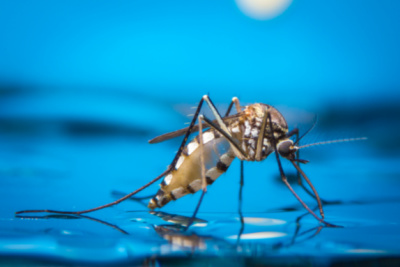Understanding viruses is essential in keeping people and their communities safe.
The University of Glasgow is doing this at global scale.
Our award-winning Centre for Virus Research (CVR) has made fundamental discoveries to improve global health.
Its focus and range of multidisciplinary virology expertise and excellent facilities distinguish it from other virology research centres in the UK and Europe.
This means that researchers can address the challenges of known and novel viruses and viral diseases at a scale not otherwise achievable.
The Centre's critical mass of virologists are making a significant contribution to hepatitis C, dengue fever, herpes, influenza, rabies, bunyaviruses, Ebola and Zika virus.
Work also includes viruses infecting animals, such as cats, horses, or ruminants to know more about how they emerge and move from animals to humans.
A molecule to populations approach
The CVR’s emergency response to COVID-19 and its longer-term work illustrate the impact of the ‘molecules to populations’ approach, including:
- implementing a centre-wide response to COVID-19 on a scale not replicated in any other UK research centre.
- preventing dengue fever transmission using a common bacteria found in many insect species.
- contributing to the elimination of Hepatitis C by driving improvements to diagnostic and treatment pathways.
The 'molecules to populations' approach means research studies span the molecular, cellular, host and population levels.
The Centre is committed to working through national and international partnerships to deliver public health benefits.
The Centre for Virus Research
Tackling the global threat of viruses requires a multidisciplinary, multilevel, multi-partner approach. The University established the Centre for Virus Research with the Medical Research Council in 2010. The Centre commits to team science, working across barriers between basic and clinical sciences, laboratory and computational approaches and human and veterinary virology. Partnerships span academia, pharma, public health bodies and health delivery services.
The Centre won a Queen's Anniversary Prize in 2021, the highest national Honour awarded in UK further and higher education.
Leading the COVID-19 research response
 The SARS-CoV-2 outbreak necessitated an immediate response from the research community. The CVR has been at the forefront of this response at a national and international level.
The SARS-CoV-2 outbreak necessitated an immediate response from the research community. The CVR has been at the forefront of this response at a national and international level.
It implemented a centre-wide, coordinated effort focused on generating immediate outputs. This response was at a scale not replicated in any other UK research centre.
It tracked the emergence of viral variants and assessed their impact on the efficacy of treatments and vaccines, applying this knowledge to the update and design of vaccines.
Now, the Centre will focus on the longer-term research efforts necessary to address key questions in SARS-CoV-2 biology.
Our researchers are working to determine which of the other coronaviruses found in bats are most likely to jump the species barrier and infect humans.
Many studies are also underway to understand how immune systems respond to SARS-CoV-2 and how this contributes to the spectrum of COVID-19 disease outcome, from asymptomatic infections through to severe morbidity and mortality.
Controlling dengue fever using Wolbachia-infected mosquitoes
 Dengue fever is the most critical mosquito-borne viral disease in the world according to the World Health Organization. Half of the world’s population is at risk of infection.
Dengue fever is the most critical mosquito-borne viral disease in the world according to the World Health Organization. Half of the world’s population is at risk of infection.
Dengue virus is transmitted to humans through the bite of an infected female Aedes aegypti mosquito.
Each year there are around 90 million symptomatic cases of dengue. Severe disease occurs in around 1% of cases and can include life-threatening haemorrhage or shock syndrome. There are no specific therapeutics available to treat dengue infection.
Current control efforts focus on reducing mosquito numbers. However, neither eliminating mosquito breeding sites or using insecticidal fogging are very effective.
Our researchers have shown that transmission can be blocked when the mosquitoes carry Wolbachia, a common bacteria found in many insect species.
They are exploring whether this naturally occurring phenomenon can be exploited as an alternative to insecticidal fogging. Field tests have shown Wolbachia to be a highly effective, safe, sustainable, cost-effective and eco-friendly approach to dengue control.
Improving Hepatitis C diagnostic and treatment pathways
 Hepatitis C virus (HCV) afflicts approximately 71 million people across the globe and is a major cause of liver disease.
Hepatitis C virus (HCV) afflicts approximately 71 million people across the globe and is a major cause of liver disease.
Most people infected with HCV develop a long-term, chronic infection and need drug treatment to clear the viral infection. Chronic HCV infection can lead to serious liver diseases, such as cirrhosis and liver cancer.
In 2016, the UK signed up to the World Health Organization (WHO) Global Health Sector Strategy on Viral Hepatitis. This commits participating countries to the elimination of HCV by 2030.
Our researchers are contributing to the WHO elimination goal by driving improvements to diagnostic and treatment pathways.


